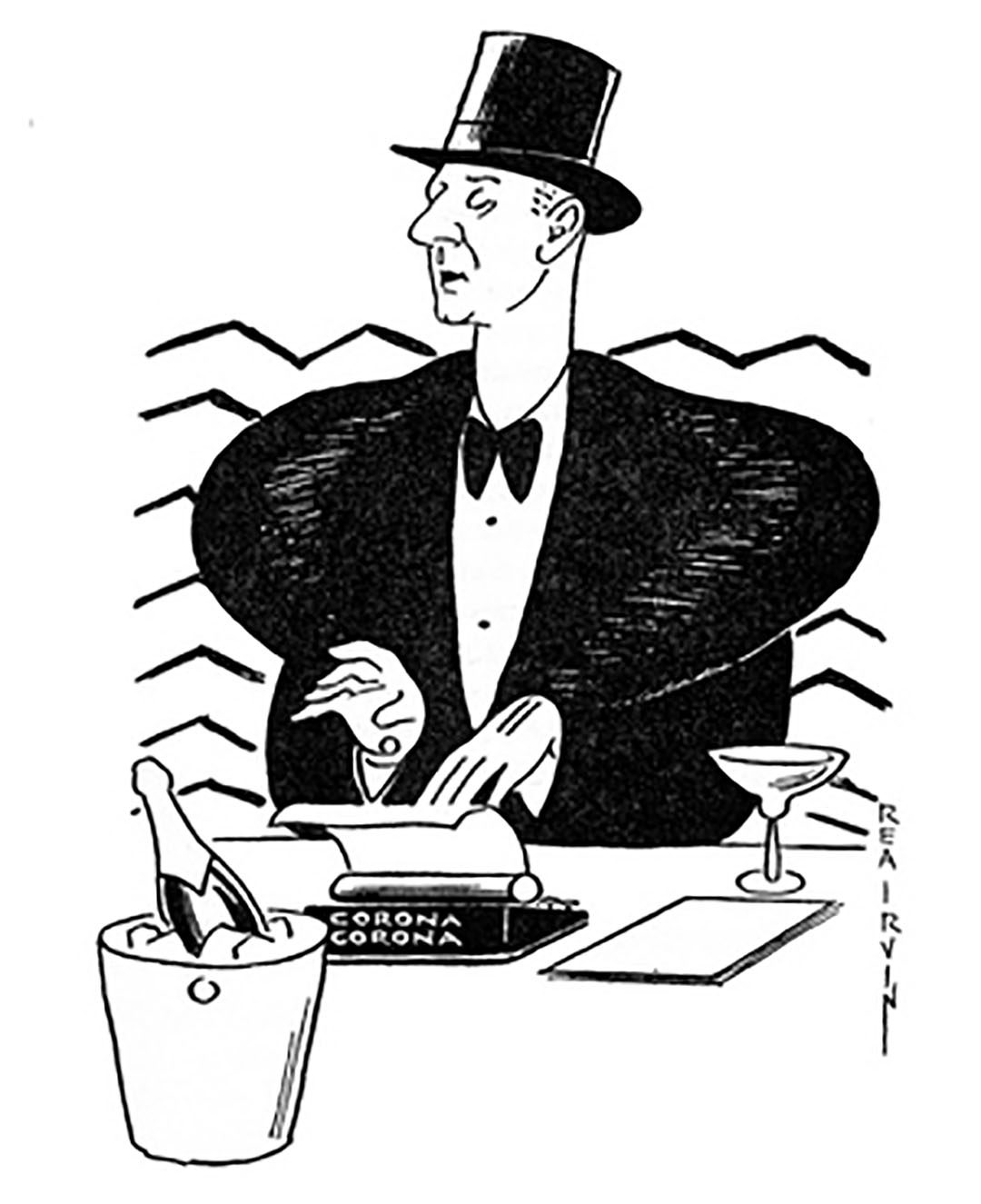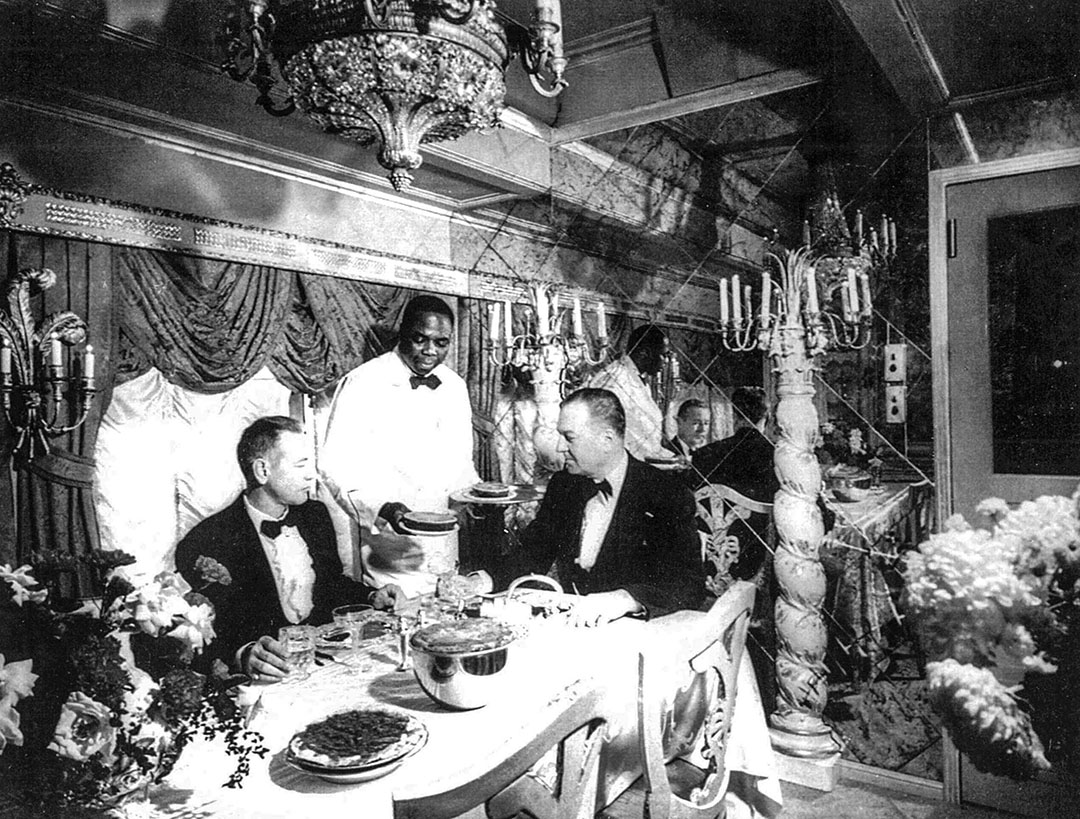Lucius Beebe left his mark here as well as across the national gastronomic scene.
The name Lucius (aka Luscious) Beebe may not ring a bell unless you’re a railroad buff. But if culinary and literary interests are more your thing, let me introduce you to this standout bon vivant and gourmand. He lived in Virginia City for 10 years and left his mark across the national gastronomic scene.
Hailing from a prominent Boston family, Beebe was born in 1902 and moved to Nevada in 1950. He had already racked up a notable career as a cultural critic and journalist. Starting in 1929, he enlivened the New York Herald Tribune for 21 years. He was well known for a syndicated column called This New York, which chronicled the city’s “cafe society,” a term he helped to popularize. At his peak, 1.5 million New Yorkers read him every morning. Competing columnist Walter Winchell dubbed him “Luscious Lucius.”
Larger-Than-Life Reputation
He always was a larger-than-life character. The Internet Movie Database website says, “By a young age he’d already developed a pronounced distaste for casual clothes, bad manners, foreign places, most foreigners and anything that was expected to occur before noon.” Beebe was outrageous even by post-Prohibition standards: While most of America suffered from The Great Depression, Beebe publicly stated he’d do his part by limiting his food-and-drink allowance to $100 per day. He also claimed to brush his teeth with Chablis. Somehow, the public loved him.
Beebe was a noted gourmand, with his own column, Along the Boulevards in Gourmet. He also wrote extensively for Holiday and Playboy. A wine aficionado, he was a member of the exclusive bacchanalian fraternity Confrérie des Chevaliers du Tastevin. A typical evening would begin at the opera, followed by expeditions to El Morocco, 21, the Stork Club, and other hot spots of the era. Then he’d stop at a Broadway coffee shop with friends — Noël Coward, for instance — for a bowl of chili. Only afterward would he write his column. He was, despite his decadent habits, a disciplined writer and work horse.

Drawn to Virginia City
In 1940, Beebe came to Nevada to review the film premier of Virginia City, starring Errol Flynn. He despised the film, but he fell in love with the historic mining town. By 1950, Beebe and his longtime romantic and business partner Charles Clegg had tired of café society life and moved to the Comstock.
In Nevada, Beebe and Clegg shifted out of party mode and dug deeply into the community. Partly propelled by their obsession with railroad history, they co-produced more than 30 books on American railroads and Western Americana. They bought Virginia City News and launched it as Territorial Enterprise two years later, resurrecting the newspaper for which Mark Twain had once written. Under Beebe’s stewardship, the editorial policy of the Enterprise was, according to Bookpatrol.net, “pro-prostitution, pro-alcohol … anti-progress, anti-religion, anti-union, anti-diet, anti-vivisection and anti-prepared breakfast food.”
Beebe and Clegg combined their love of railroads and the high life with their private rail cars, the Gold Coast, which now sits in the California State Railroad Museum, and the Virginia City. The most lavish and expensively outfitted private railway cars in the United States, they were the period equivalent of today’s private jet, having been decorated by a Hollywood set designer in an over-the-top Venetian-Renaissance-Baroque style.
Trailblazing Gay Lifestyle
The couple’s relationship was openly acknowledged, and as the Online Nevada Encyclopedia (ONE) mentions, “[W]hile most residents disapproved of a gay lifestyle, they chose to overlook it, in part because the men were improving the community…” Beebe would respond to whispers with a sharp “go to hell.”
Beebe was a community activist while living in Nevada. Saul Bellow, A.J. Liebling, Cole Porter, and Salvador Dali ventured to the old mining town once Beebe and Clegg put it back on the cultural map. In 1958, Beebe was appointed chairman of the Nevada Silver Centennial Committee. His efforts produced a U.S. commemorative stamp honoring the discovery of the Comstock Lode.
Clegg and Beebe sold Territorial Enterprise in 1961 and moved to the San Francisco area, where Beebe died of a heart attack five years later. His Nevada legacy lives on with his induction into the Nevada Writers Hall of Fame in 1992 and the Nevada Press Association’s Hall of Fame just this past year. But don’t tell your dentist that Lucius Beebe brushed with Chablis!
Sharon Honig-Bear was the longtime restaurant writer for the Reno Gazette-Journal. She is a tour leader with Historic Reno Preservation Society and a supporter of all things cultural and historic. She can be reached at Sharonbear@sbcglobal.net.


